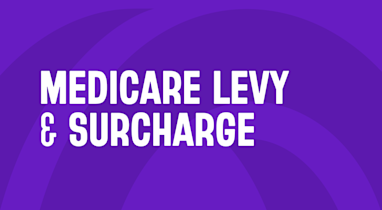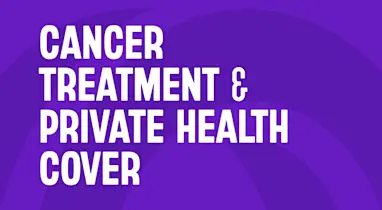quote
870 Visa Health Insurance Comparison
Are you an Australian citizen, permanent resident or eligible New Zealand citizen living in Australia? Then your overseas parents may be able to visit Australia for up to three or five years with an 870 (Sponsored Parent) visa. However, to be eligible for a temporary 870 visa, your parent or parents will need to hold adequate private health insurance before they arrive in Australia.
Key Points
Many visas require OVHC as a condition of entry, including popular visitor, work, and bridging visas.
Your Medical care in Australia can be expensive for overseas visitors. An ambulance ride or hospital stay can cost thousands without OVHC.
With OVHC, you may get faster access to care including doctor visits and some hospital treatments.
What type of sponsored parent health insurance meets the 870 visa requirements?
Applicants for a 870 visa must typically hold Overseas Visitor Health Cover (OVHC), which provides coverage for medical expenses, hospitalisation, and emergency services equivalent to Medicare.
The policy may also need to include repatriation benefits, which help pay for the cost of returning a person to their country of origin if they become seriously ill, need ongoing care, or pass away.
Compare OVHC InsuranceCan my parents use Medicare if they are on a 870 visa?
If your parents are from countries with reciprocal health care agreements (RHCAs) with Australia, they may have limited access to Medicare for emergency or medically necessary care. However, they may still need to hold OVHC to meet condition 8501 of their 870 visa. OVHC may also provide financial protection for a significantly wider range of medical treatments.
Australia currently has RHCAs with:
United Kingdom
Republic of Ireland
New Zealand
Sweden
The Netherlands
Finland
Belgium
Norway
Slovenia
Malta
Italy
Do I need to organise OVHC for my parents before they arrive in Australia?
Yes, your parent or parents will typically need to show they hold OVHC as part of the application process for an 870 visa.
Their visa application may be rejected if they do not hold current OVHC.
Some insurers may require the OVHC policy to start within 14 days from the purchase date, so it should be arranged close to the intended arrival.
What does 870 visa health insurance actually cover?
OVHC inclusions may differ between insurance providers, but typically pays benefits or rebates towards the cost of an ambulance in an emergency, and may also contribute towards some prescription medications.
OVHC will also usually cover you for public hospital stays and the same sort of out-patient care an Australian would have covered by Medicare.
If you want cover for dental or optical care, or any remedial therapies such as physiotherapy or acupuncture, you might be able to upgrade your policy to include a level of extras or you can take out an extras health insurance policy with a local health fund.
Learn more about health insurance with these guides
What happens if my parents get sick and the insurance doesn't cover it?
If your parents require medical treatment – whether in or out of hospital – that is not covered by their OVHC policy, they will likely need to pay all costs out of their own pocket.
Will 870 visa health insurance cover pre-existing conditions?
It depends on the specifics of your OVHC policy. Most insurers define a pre-existing condition as any illness or ailment where you’ve experienced signs or symptoms within the six months leading up to the start date of your insurance policy. Some OVHC policies may allow you to claim on certain pre-existing conditions after you serve a pre-set waiting period (usually around 12 months).
However, depending on the terms of your policy, some pre-existing conditions may not be covered at all.
Compare OVHC InsuranceWhat are the waiting periods for 870 visa health insurance?
Waiting periods for OVHC are generally the same as waiting periods for other private health insurance policies for Australian residents, and may include:
Condition* | Waiting period** |
|---|---|
General dental treatments | 2 months |
Physiotherapy and chiropractic treatments | 2 months |
Complimentary treatments (eg. Chinese medicine) | 2 months |
Psychology | 2 months |
Speech therapy | 2 months |
Pre-existing psychiatric conditions | 2 months |
Optometry | 6 months |
Pregnancy-related services | 12 months |
Major dental treatments | 12 months |
Laser eye surgery and hearing aids | 24 months |
*This is a guide only. OVHC exclusions vary between insurers and some or all of the listed conditions may not be covered under certain OVHC policies. The experts at Compare Club can help you assess what is covered under specific OVHC policies.
**Waiting periods may also vary between insurers.
Who applies for the 870 visa? Me or my child?
You must have an approved Parent Sponsor before lodging your 870 visa application, but you are the 870 visa applicant. Your child (or their spouse) is your Parent Sponsor. Your 870 visa application must be lodged within six months of your child being approved as a suitable Parent Sponsor. Your 870 visa application must be completed online.
How long will it take to process my 870 visa application?
Visa processing times vary with the time of year, and the complexity of your application. Standard processing times currently range from 71 days to up to 7 months, which is a broad range. You’ll find a guide to processing waiting times here. [https://immi.homeaffairs.gov.au/visas/getting-a-visa/visa-processing-times/global-visa-processing-times] Want to find a good value health insurance policy that meets your needs? Compare Club’s experts have saved over 239,000 Australians an average of $295* by helping them compare health cover in the last 10 years.
Sources
*$295 based on 239,107 sold over the past 10 years (From 2015 to 2024).
What's new in health insurance?
Biggest hike in years: Health insurance premiums will rise by an average of 4.41% on April 1 — the largest hike since 2018 and noticeably higher than last year’s increase of 3.73% (in 2025).
Most Aussies face higher hikes: Compare Club’s data suggests that due to the five largest funds holding nearly 80% of the market, the average increase for the majority of policyholders is closer to 5.00%.
Review your policy: Now’s the time to check if your policy still fits—better deals could be available.
Things You Should Know
*As our customer you'll be provided with quotes directly from the insurer for the product you intend to purchase. We manage the application and deal with the administration work and insurer. We do not charge you a fee for the service we provide, the insurer simply remunerates us in return for setting up your policy. The financial and insurance products compared on this website do not necessarily compare all features that may be relevant to you. Comparisons are made on the basis of price only and different products may have different features and different levels of coverage. Compare Club does not compare all policies available in Australia and our partner insurers may not make all policies available to Compare Club.
This guide is opinion only and should not be taken as medical or financial advice. Check with a financial/medical professional before making any decisions.
Chris Stanley is the sales & operations manager of health insurance at Compare Club. With extensive experience and expertise, Chris is a trusted leader known for his deep understanding of health insurance markets, policies, and coverage options. As the sales & operations manager of health insurance, Chris leads a team of dedicated professionals committed to helping individuals and families make informed decisions about their health insurance needs.

Meet our health insurance expert, Chris Stanley
Chris's top health insurance tips:
- 1
Australia’s public health system is world-class, but wait times for public hospitals can be long, inconvenient - and leave you living in constant pain while you wait.
- 2
An appropriate private health insurance policy can speed up your surgery, relieving your pain sooner.
- 3
Family health cover means your children are covered under the same policy as you.
- 4
Many health insurance policies come with a 12-month waiting period for pregnancy-related cover, so it’s a good idea to get a family policy organized well before starting your family. This means your child will be covered from birth until at least their early twenties (depending on which health fund you select).




